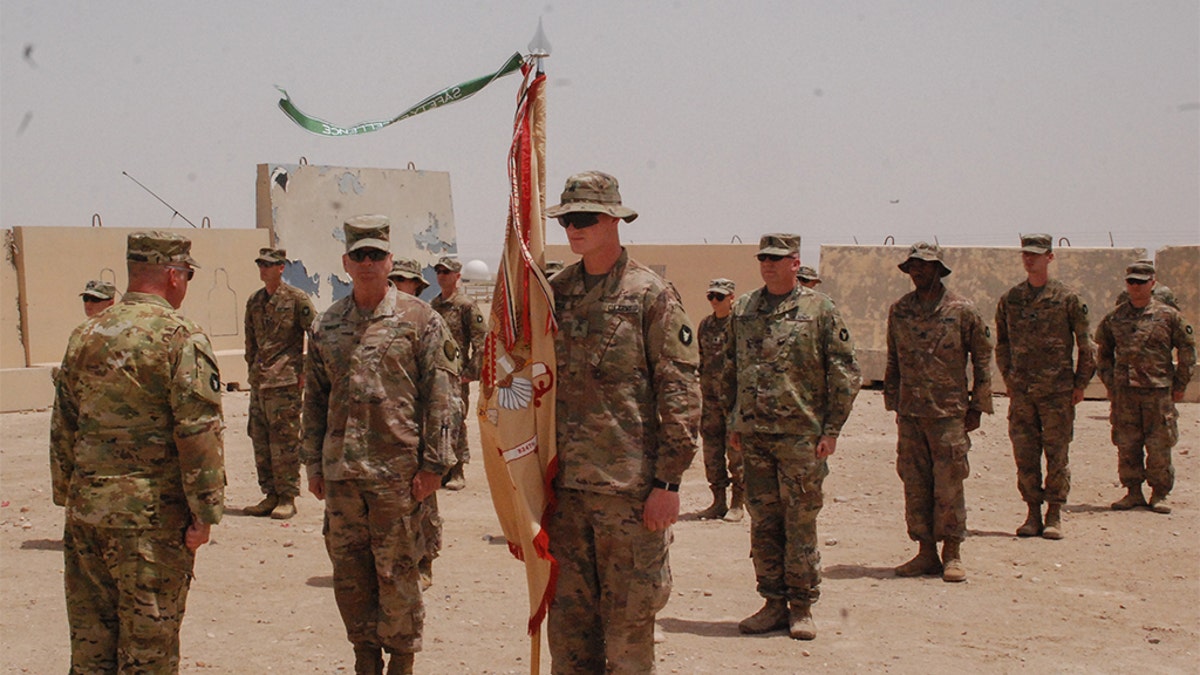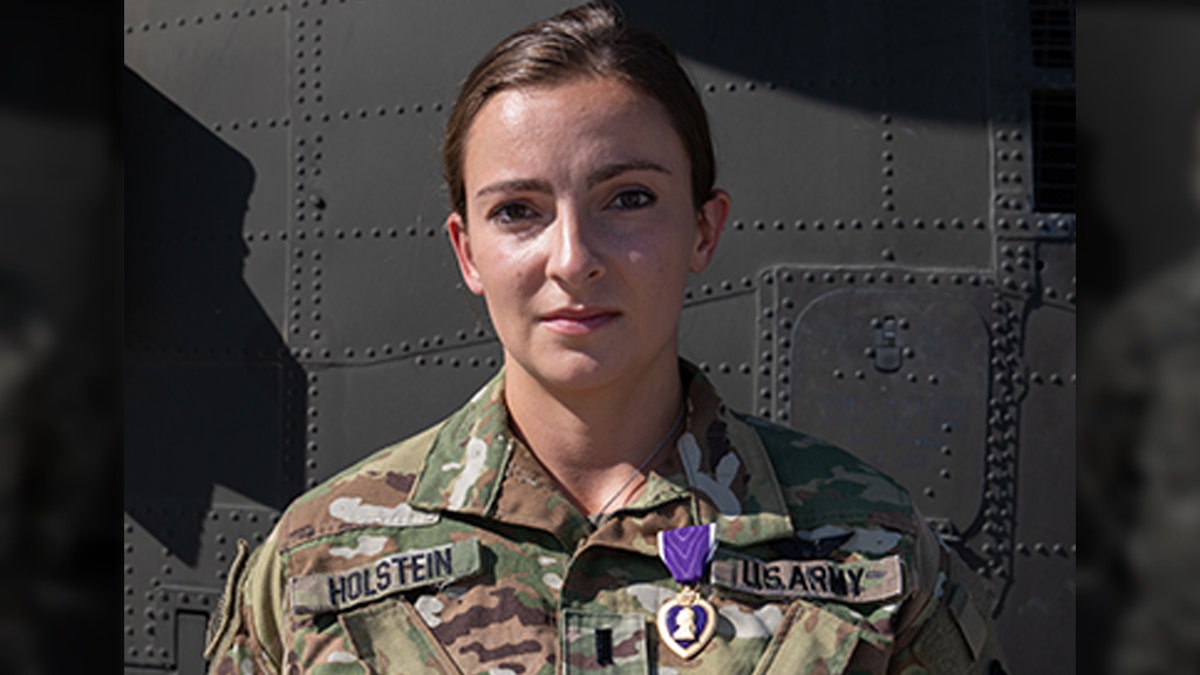Fox News Flash top headlines for May 4
Fox News Flash top headlines are here. Check out what's clicking on Foxnews.com.
Six Army soldiers who were injured in a ballistic missile attack on an American base in Iraq in January have been awarded Purple Hearts, and 23 others have been approved for the award and will receive them later this week, U.S. Central Command said Monday.
The first batch of awards was given to soldiers in Iraq and Kuwait on Sunday and Monday, but soldiers maintained the appropriate physical distance from each other to prevent the spread of coronavirus.

Members of the Headquarters Support Company, 834th Aviation Support Battalion stand in formation (maintaining physical distancing standards for COVID-19 prevention) on May 2, 2020, at Camp Buehring, Kuwait, during the Purple Heart presentation ceremony for Maj. Alan Johnson. (U.S. Army photo by Sgt. Morgan Maidl)
At least 110 U.S. service members were diagnosed with traumatic brain injuries (TBI) after more than a dozen missiles rained down on al-Asad Air Base in Iraq on Jan. 8, where American troops were housed.
The Iranian attack was retaliatory and came just days after the U.S. drone strike on an airport in Baghdad that killed the head of the Islamic Revolutionary Guard Corps' elite Quds Force, Gen. Qassem Soleimani. Troops at al-Asad were warned of an incoming attack, and most were in bunkers scattered around the base.
Nearly a month after the attack, the Pentagon began to report that a number of troops were suffering from TBI with symptoms mimicking that of a concussion. Initially, Trump dismissed the injuries as "not very serious," passing them off as headaches and other things.
However, several service members were hospitalized from their injuries or returned to the U.S. The majority of those injured were able to return to work.

1st Lt. Abigail Holstein was presented the Purple Heart on May 3, 2020, for her injuries sustained during the theater ballistic missile attacks at Al Asad Air Base, Iraq, on January 8, 2020. Of the 27 Soldiers to receive Purple Hearts from the January attacks, 1st Lt. Holstein is one of the few 34th Expeditionary Combat Aviation Brigade recipients to return to duty after receiving initial treatment for her injuries and thus, received the Purple Heart medal in-theater. She serves as an enroute critical care nurse with Charlie Company, 3-238th General Support Aviation Battalion. (U.S. Army photo by Sgt. Sydney Mariette)
The effects of TBI have gained more prevalence in the military in recent years as more and more troops in the Iraq and Afghanistan wars began suffering from head injuries from bombings and other explosions.
Navy Capt. Bill Urban said 80 service members were considered for the awards but those selected were approved by Lt. Gen. Pat White, the top U.S. commander in Iraq, based on Army and Air Force regulations determined by a review board.
Urban said that a TBI diagnosis doesn't automatically qualify a servicemember for a Purple Heart.
CLICK HERE FOR THE FOX NEWS APP
The Associated Press contributed to this report.





















